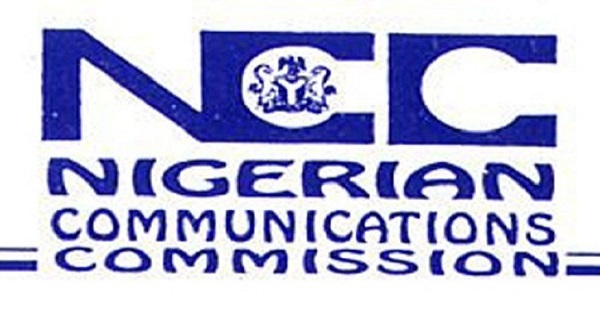Telecom
NCC Asks GSM Customers to Use 622 Toll-Free-Line for Complaints

Nigerian Communication Commissions (NCC) has urged customers of telecommunication operators to lodge their complaints of unsatisfactory services through its 622 Toll-Free-Line.
Prof. Umar Danbatta, executive vice chairman of the commission, said this at the 95th Edition of Consumers Outreach Programme in Dutse last week.
Danbatta, who was represented by Felicia Onwuegbuchulam, director, Consumers Affairs Bureau of the commission, said that the commission was disturbed with the various complaints from customers.
The complaints include unsolicited text messages and calls, failure/refusal to roll over unused data services at the expiration of data bundled by service providers.
Others are automatic renewal of data services upon expiration and activation, subscription to data and Value Added Services without the consent of subscribers.
He said: “It is in response to these complaints that the commission as a proactive institution has taken appropriate steps to address the issues raised.’’
The NCC boss, said that the commission had issued directive to service providers to desist from forceful subscription of data services and VAS unless they got the consent of the customers.
He said: “It is on this note that we develop 622 Toll-Free-Line for customers to lodges any unresolved complaints to us between them and their providers.’’
He said that failure to comply with the directive by any telecom provider would attract penalties by the commission.
He said: “This is because we believe that a consumer is a king and as such he needs some basic rights and privileges like the right to be heard, right to be educated, right to choose, right to redress as well as right to safety.”
Danbatta said that the Consumers Outreach Forum was an initiative of NCC to bring together telecom consumers in urban areas with network operators and regulators to discuss and offer solutions to consumer’s related issues.
He said: “This is to ensure consumers have value for their money through effective service delivery.’’
Governor Muhammad Badaru of Jigawa, who was represented by his Alhaji Ibrahim Hadejia, deputy, decried of the fluctuating nature of services by network providers.
Hadejia said that people had to climb mountains or go near network masts before they could make calls or send messages.
He urged the telecom providers to provide free network sites or provide some services at subsidised rates for e-learning as obtained in advanced society.
While commending the NCC for the tripartite meeting between consumers, telecomm operators and regulator, he urged telecom operators to build good networks for optimum advantage and utilisation for political, economic and social benefit of the customers.
Telecom
Glo Unveils Immersive Gaming Experience, Travel Saga

With the introduction of Travel Saga, a premium, fast-paced gaming experience that is currently live and accessible to customers on its network, Globacom has lifted the bar for mobile entertainment in the country.

Travel Saga is a story-driven, intricately connected role-playing game designed to provide the thrill, complexity, and competitive intensity of some of the most well-known action games in the world.
The game, which has been painstakingly optimized for mobile devices, redefines mobile gaming as a full-fledged digital battlefield by translating a console-grade experience onto data-enabled handsets.
Fundamentally, Travel Saga takes users on quick virtual journeys against recognizable international landscapes. In a dynamic, ever-evolving gaming environment, players are thrown into furious missions, fierce fights, and ever-expanding tales where talent, strategy, and endurance determine who rises through the ranks to become a true war hero.
In addition to the excitement of fighting, users are encouraged to go to various locations, take part in thrilling challenges, and participate in intense competition for in-app rewards like points and victory badges. With each encounter and accomplishment, the immersion increases with each level, maintaining momentum and excitement.
Flexible subscription plans with one-time or auto-renewal choices are available to subscribers for the service, which costs ₦100 per day and ₦250 per week. By dialing *70021#, customers can quickly subscribe and gain instant access to the action.
With Travel Saga, Glo reaffirms its dedication to innovation and high-end digital experiences, making top-notch gaming easily accessible to its customers. The game offers uninterrupted action, adventure, and competition, all smoothly supported by the Glo network.
Telecom
SHELT Named in Prestigious 2025 MSSP 250 List for Cybersecurity Excellence

SHELT, a leading cybersecurity-as-a-service provider, has earned inclusion in the 2025 MSSP 250, the annual ranking of the world’s top 250 Managed Security Service Providers (MSSPs) by MSSP Alert, a CyberRisk Alliance publication.

SHELT
The list evaluates firms on business performance, service breadth, and industry impact, spotlighting those excelling in growth, operational excellence, and advanced managed security amid rising cyber threats. Selection criteria include annual recurring revenue, profitability, workforce expansion, business growth, and the depth of managed security offerings.
SHELT’s recognition underscores its investments in scalable security operations, threat intelligence, and tailored managed services across multiple regions, enabling clients to navigate complex risk landscapes effectively.
“Being recognised in the MSSP 250 is a meaningful milestone for our team,” stated Youssef Abillama, CEO of SHELT. “It validates our focus on building practical, resilient security services that help organisations manage risk and respond effectively to today’s evolving cyber threats.”
The company hailed the honour as testament to its teams’ dedication and expertise worldwide, reaffirming commitment to enhancing capabilities and delivering trusted cybersecurity solutions.
Telecom
Meta Names Ex-Trump Adviser Dina Powell McCormick as President

Meta Platforms, owner of Facebook, has appointed Dina Powell McCormick, a former adviser to President Donald Trump, as its new president and vice chairman, bolstering its leadership amid aggressive AI and infrastructure expansion.

Dina Powell McCormick
The announcement, made on Monday, positions Powell McCormick – who recently stepped down from Meta’s board after eight months – to guide overall strategy, including multi-billion-dollar investments in data centres and global partnerships.
A Goldman Sachs veteran with 16 years in senior roles and prior stints as deputy national security adviser under Trump and in the Bush administration, she brings deep finance and international ties to the role.
Meta CEO Mark Zuckerberg hailed her as “uniquely qualified” for the company’s next growth phase, while President Trump praised the move on Truth Social as a “fantastic choice”.
The hire signals Meta’s efforts to strengthen White House relations, following recent dinners with Trump and U.S. investment pledges worth hundreds of billions

 General News2 days ago
General News2 days agoPalmPay, Premier Cool to Reward 10,000 Nigerians with ₦100m in “10k for 10k Campaign”

 E-Financial2 days ago
E-Financial2 days agoEcobank Joins Trillion-naira Club for the First Time in 20 Years

 E-Business2 days ago
E-Business2 days agoKaspersky Warns Telecom Threats from 2025 will Carry into 2026 as New Technology Adds New Risk

 E-Business2 days ago
E-Business2 days agoNigerian Terra Industries Secures $11.8m for Expansion

 E-Financial1 day ago
E-Financial1 day agoAngst as FG Demands 7.5 Percent VAT on Mobile Bank Transfers, USSD

 Telecom2 days ago
Telecom2 days agoSHELT Named in Prestigious 2025 MSSP 250 List for Cybersecurity Excellence

 News1 day ago
News1 day agoMoniepoint Launches Second Cohort of DreamDevs Initiative to Double Down on Africa’s Tech Talent Pipeline

 E-Business1 day ago
E-Business1 day agoHalf of Global Companies Build SOCs to Enhance Cybersecurity, with a Focus on Human Expertise















